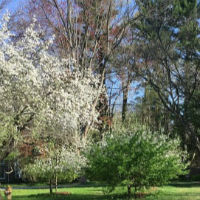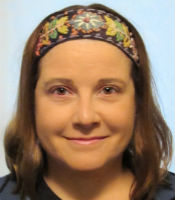7:30pm - 9:00pm in The Barn.
Registration required -- you can sign-up for one, two, or all three lectures (which will be recorded for future viewing via our website).

Apr 12-14, 2018
Call Us for More Information!
610-566-4507, ext. 137
APRIL 12, 2018: 7:30—9:00 pm
A Quaker Translator and the Blessed Bugbear of Biblical Authority
Access to scripture in the current plain language of the people was the rock on which the Protestant Reformation was founded. Bible translation was perhaps the greatest contributor to the key modern attitude of “Let me see for myself.” But the scriptures originally were distinctly communitarian, aimed toward worshipping, celebrating, mourning, learning, and living together. How can a better appreciation of the original Bible’s beauty, humor, mysteries, contradictions, and unities make this book a better source of inspiration and reconciliation in troubled times? And how can such an understanding of the Bible be offered without bitter cultural and political conflict?
APRIL 13, 2018: 7:30—9:00 pm
Sitting in Meeting with Ancient Voices: Isaiah, Jesus, Paul
These three risk being regarded as icons, inhabiting a remote, onedimensional unreality. But a literary reading of their words reveals levels of tenderness, wit, and emotional and spiritual struggle that standard translations give no reason to suspect. A central project of Friends is to listen. Can listening, not only to the bare words of scripture but also to its style and nuances, help us imagine what a face-to-face encounter would be like with those who shaped our faith and our world?
APRIL 14, 2018: 7:30—9:00 pm
For Quaker Consideration (Seriously): The Bible in the Confessions of Augustine
Though almost unknown in Quaker circles, Augustine is a literary genius we should consider. As a sect, we have often drawn new, unexpected inspiration from old texts, and that is what Augustine did himself. Rather than merely quoting from the Bible in the commonly used translation of his time, the Old Latin, Augustine turns that version of scripture into a new language, which he uses in speculating freely about the nature of being. He writes not in ordinary Latin, but in Latin Bible, with some striking and inspiriting results.
 Sarah Ruden is a poet, translator, essayist, and popularizer of Biblical linguistics and a Quaker by “convincement.” Trained as a classical philologist, Sarah has won high praise for her book-length translations of Greek and Roman classics, including Vergil’s Aeneid, Aristophanes’ Lysistrata, and Petronius’ Satyricon. More recently, Sarah has turned her attention to Biblical literature. In 2010, she published Paul among the People: The Apostle Reinterpreted and Reimagined in His Own Time, which provided a fresh look at Paul by painting the brutal and rigidly class-structured Roman world against which Paul’s message of love stood so radically. Rod Dreher for Beliefnet wrote of the book: “The most exciting book of historical analysis I’ve read in ages – indeed the most exciting book period … What makes reading Ruden such a pleasure, aside from the quality of her thinking and her prose, is her willingness to question settled truths, and to do it with such a lightness of spirit.” For more information about Sarah and her work visit www.sarahruden.com.
Sarah Ruden is a poet, translator, essayist, and popularizer of Biblical linguistics and a Quaker by “convincement.” Trained as a classical philologist, Sarah has won high praise for her book-length translations of Greek and Roman classics, including Vergil’s Aeneid, Aristophanes’ Lysistrata, and Petronius’ Satyricon. More recently, Sarah has turned her attention to Biblical literature. In 2010, she published Paul among the People: The Apostle Reinterpreted and Reimagined in His Own Time, which provided a fresh look at Paul by painting the brutal and rigidly class-structured Roman world against which Paul’s message of love stood so radically. Rod Dreher for Beliefnet wrote of the book: “The most exciting book of historical analysis I’ve read in ages – indeed the most exciting book period … What makes reading Ruden such a pleasure, aside from the quality of her thinking and her prose, is her willingness to question settled truths, and to do it with such a lightness of spirit.” For more information about Sarah and her work visit www.sarahruden.com.
Travel directions to Pendle Hill. Click to view the flyer.